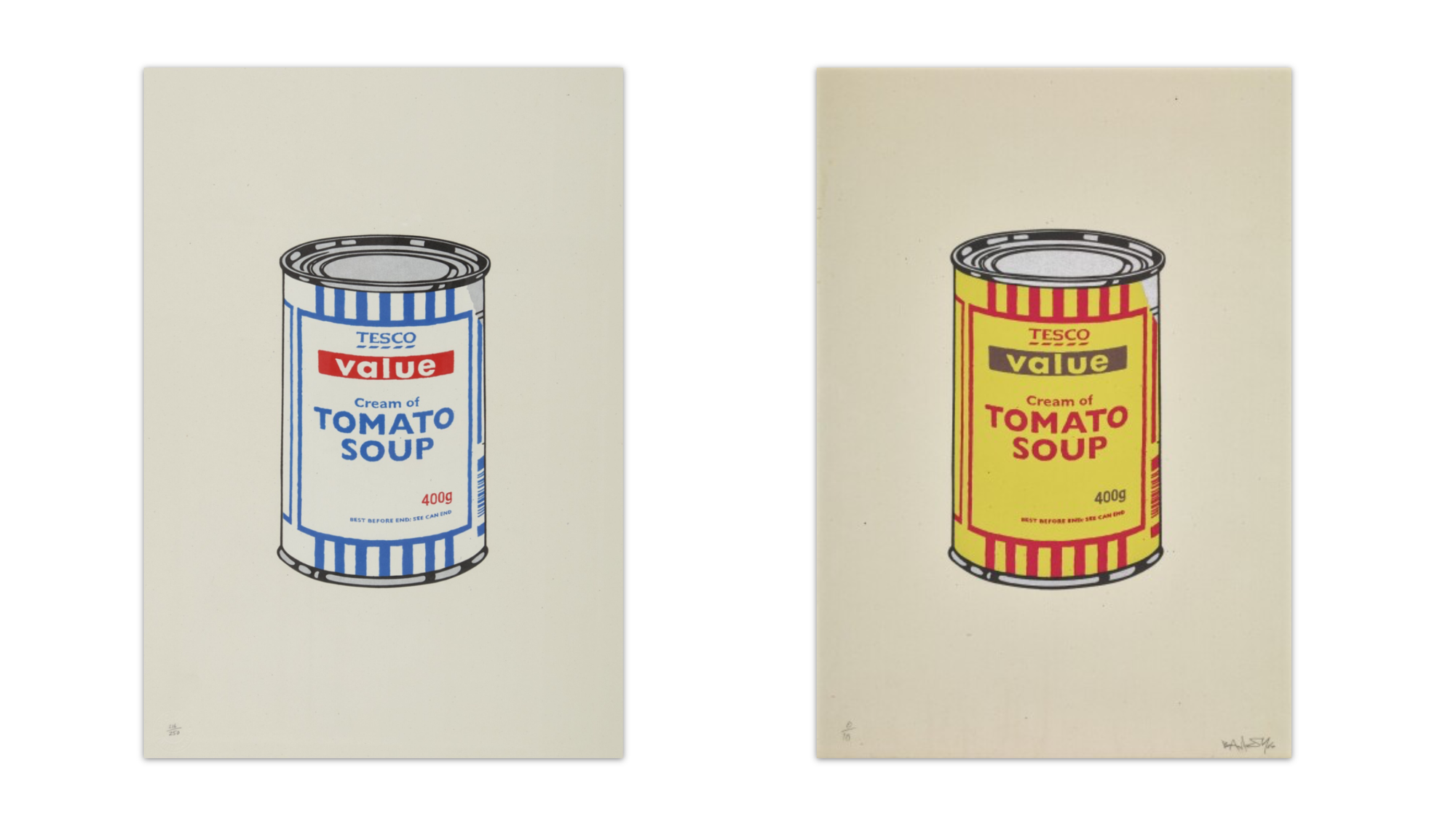Mistaking the menu for the food

Let’s do an experiment.
A chef who can’t read comes into your kitchen to cook you a meal.
You’re sitting in another room and can’t see what they’re making but you can smell it.
On the bench top there are two cans, one red, one blue, each look similar but have different texts on them.
Of course, your chef for the night can see the difference in the texts but can’t read so it doesn’t matter to him.
Yes, this chef is cheating a little and not cooking from scratch, but that’s the beauty of an experiment.
He opens the cans and tests them with his nose.
Years of cooking have trained his sense of smell to pick up even the slightest lack of taste.
He then puts them each in a separate pan, one blue, one red, to start heating them up.
Plumes of flavour start wafting over to you in the next room.
You can feel your mouth filling with salvia.
You hear sounds of dishes clanging together, cutlery hitting the table, spices being applied and cooking equipment entering the sink.
Your chef walks around the corner carrying two steaming dishes, one on a red plate and the other on a blue plate.
Four out of five senses go on overdrive, your nose soaks up the smell, your eyes take in the sights, is that beef? You ask. Yes, beef and vegetable curry, the chef replies. Your ears can almost hear the different ingredients sloshing together. And despite your table manners, you feel like putting your finger in the dish to see if the sauce feels how it looks.
The chef offers you to try both dishes and see which you prefer.
A spoonful of the blue dish enters your mouth and melts away.
You look at the chef and your eyes widen as if to say I’d like this to be my last meal.
The chef smiles and pulls the blue dish away before placing the red dish in its place.
You begin to get excited thinking if this is anything like the blue dish, please, bring more.
A spoonful of the red dish enters your mouth and melts away.
It makes you sit back in your chair.
The blue dish was worthy of a last day meal but you look at the chef in shock as if to say I’d like this to be my every day meal.
The chef smiles and says to enjoy, he’ll go and clean up.
You continue on the red dish and feel like calling your friends to tell them what an incredible meal you’ve had. But part of you says let’s keep it a secret. Savour the experience only you’ve experienced.
The chef returns to find an empty red dish and an almost full blue dish.
I loved the blue dish but I couldn’t help but finish the red dish, you say.
I’m glad to hear, the chef says, and not to worry, I can store the blue dish for later, it’s even better the second time round.
You must reveal your secrets, I have no idea how you got the beef that tender, it fell apart as soon as I touched it. Please, share with me the recipe, I’d love to try it myself.
The chef smiles, says, one second.
He returns with two cans and places them one in front of each dish.
Out of a can? Surely not! You say.
The chef nods.
My gosh, where did you get these? You ask.
Well, believe it or not, you’ve got a large supply of them in your cupboard.
You look at the chef confused.
And then reach for the cans.
You turn the can in front of the blue dish around and it says beef and vegetable curry, extra tasty. You’ve seen it before but you can’t remember buying it.
You turn the can in front of the red dish around, read it, look at the chef, read it again, back at the chef.
You feel like throwing the can at the chef.
What?! You scream.
The chef looks at you confused.
What did you feed me?!
I’m sorry, I’m not sure what you mean. The chef says.
You hold the red can up to his face.
Read it!
The chef looks even more confused, stunned.
I’m not sure what it says, I can’t read, the chef says.
You pull the can back.
What? You can’t read?
No sir, I cannot read, only cook.
You start to laugh and begin to read it out loud.
Beef and vegetable curry, dog’s favourite.
You talk through laughter, you fed me a can of dog food.
The chef’s mouth opens wide.
He looks away and joins you in laughter.
It tasted good though? No?
You look at the chef.
I don’t know whether to feel sick or jealous.
Sick because I ate dog food or jealous because my dog gets to eat this everyday.
What made you feel sick?
The words on the can or the contents?
The food or the menu?
Such an experiment shows people don’t just eat food, they eat words too.
And the taste of the former is often outdone by the taste of the latter.
So even though you might’ve been eating a perfectly safe to eat (let’s assume it’s a high-end brand of dog food made by chefs) and delicious beef and vegetable curry, dog’s favourite, the two words on the end of the sentence overpower the sense of taste and smell.
In other words, perception takes over reality.
Notice how if something is branded as health food, it typically implies it doesn’t taste good, even though it may taste delicious.
Or the common practice of looking up the menu of a restaurant before actually dining there.
Does reading the menu beforehand make the food taste better?
Perhaps.
Sure, there are problems to avoid such as allergies but it illustrates how much words can influence and even override our natural senses.
Mistaking the menu for the food is a prime example of this.
A similar saying is the map is not the territory.
Meaning no matter how detailed the trees on your map are, it still doesn’t compare to walking through them.
The same with confusing a noun for the real thing.
No matter how many times you say the word water, it won’t quench your thirst.
You see this concept in the modern medical center.
Sometimes it seems far more important to write down the reason for the visit rather than the actual treatment.
On the other hand, what if the seriousness of medical note taking contributes to the treatment?
Humans don’t like to admit but often it’s the perception of the thing that matters far more than the actual thing.
Knowing this is a superpower.
Perhaps a better option than changing your reality is to change your perception of it.
Before you knew the dish was branded as dog food it tasted delicious, after you read the label, disgusting.
Flip it.
Reality: Life’s a drag.
Perception: Yes it can be but struggle makes for good stories.
Reality: I’m sick. Perception: I get to rest and relax.
Reality: My commute takes 40-minutes.
Perception: I get to read and look out the window.
Reality: It’s tough to build a new skill.
Perception: Sucking at something for a while gives me a chance to be better at it later.
This isn’t to say to ignore the fundamental reality, only to notice how easy it can be to change your perception of it.
And to decide what’s more important, the menu or the food?
Marketing or the product itself?
Sometimes one.
Sometimes the other.
Sometimes both.
Does this mean it’s okay to eat dog food if you just ignore the label?
Only if it smells good!
Just maybe listen to the part of you that wants to keep it a secret.
